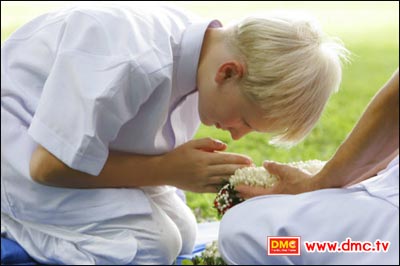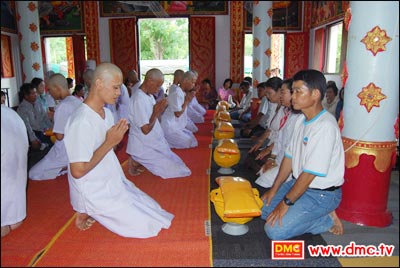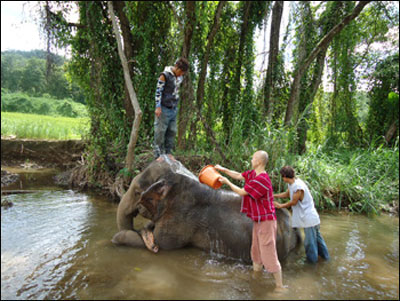People and things that are worthy of gratitude
“A blind man will not see the world, no matter how brightly the sun shines. In the same way
An ungrateful person will not see gratitude no matter how much help and compassion is received from the benefactor.”
Definition of Gratitude
The Pali word for gratitude, katannu means recognizing the benefit brought to us by others. Any person who has done favors for us, no matter the favors, such as fostering us, teaching us, sheltering us, providing the job, etc.., would be able to recognize and appreciate them all the time never forgetting them.
On the other hand, gratitude also means recognizing the latent benefit of the merit accumulated by our past actions. Realizing the we are free from any danger, any demerit retribution, and able to live a happy life is due to the merit retribution of good deeds we accumulated from the past. So never forget the benefit of the merit we perform and continue to cultivate more merit.
In conclusion, gratitude means recognizing the benefits. It means being able to recognize and appreciate the merit and what is of benefit to us without forgetting. For those people who have gratitude, even though their eyes cannot see, their mind is as pure and radiant as the sun and the moon combined.
Gratitude
People and things that are worthy of gratitude
1. Gratitude to personages: any person that used to be grateful to us, no matter how many favors they have done for us, we have to be grateful to them, recognize them with appreciation and find every opportunity to pay them back the debt of gratitude. Especially for the Lord Buddha, a monk, the parents, the teachers and the king who reigns county with “The ten virtues of the King”
2. Gratitude to animals: means the beasts of burden that are beneficial to us, such as elephants, horses, cows and water buffalos. We should use them appropriately with care, not to overuse their labors and also making sure they have enough food, enough rest and sleep. One example regarding gratitude t animals is as follows: Before the Buddha era, one day, the king of the Rajah Kruge city visited the Royal Park and felt asleep. While a cobra was crawling in t attack the king, a tree shrew screamed to awaken the king and chased away the cobra. The king had gratitude towards the tree shrew for saving his life. So the king, as a reward, bestowed the shrew in the royal park. In later time, the park turned into “Veruwan Vihara” , the first Buddhist temple.
3. Gratitude to inanimate objects: means any object that is beneficial to us, such as Dhamma books, text books, schools, temples, threes, forest or any equipment that we use to earn a living, We have to treat them properly, not disrespect and not cause damage to them.
For example : the carrying pole that once was used to carry goods for selling, even after the owner became rich and well established, the owner never discarded it, but still appreciated the benefit of the carrying pole as a part of his life that helped creating the wealth. He layered and embossed it with gold and kept it as a memorial of his life.
Not only the people who shelter us, but even the tree that provides us with shade, we should not break its branch, stem or leaf of the tree. The person who is sheltered by the shade of the tree, but still breaks the branch, the stem, the leaf, the node or the root, will be considered as a person who is capable of reaking the friendship, an ungrateful person who always will encounter misfortune in the future.
Gratitude to animals: means the beasts of burden that are beneficial to us, such as elephants, horses, cows and water buffalos.
4. Gratitude to merit: Merit brought all forms of success and happiness into our lives. We can have a longer lifetime, good health good complexion, intelligence. Happiness, progress and material comfort. The merit also enables us to enter the heaven realms, and enable us to attain Nirvana. Merit is every success, so we have to be grateful of the merits we accumulated in the past, and the merit that we cultivated in this lifetime. Always acknowledge the merit we accumulated in the past and mindful in cultivating more and more merit.
5. Gratitude to yourself: means realize that the body is our vehicle to cultivate good deeds to attain happiness and prosperity in life. So we have to take good care of our body instead of trying to destroy it by drinking, taking intoxicants, going out late all night. Do not use the body as tool to perform any bad deeds, such as killing, stealing or womanizing.
Meditation - Related Articles
" />
" />
" />
" />
" />
" />
" />
" />
" />
" />
" />
" />
" />








